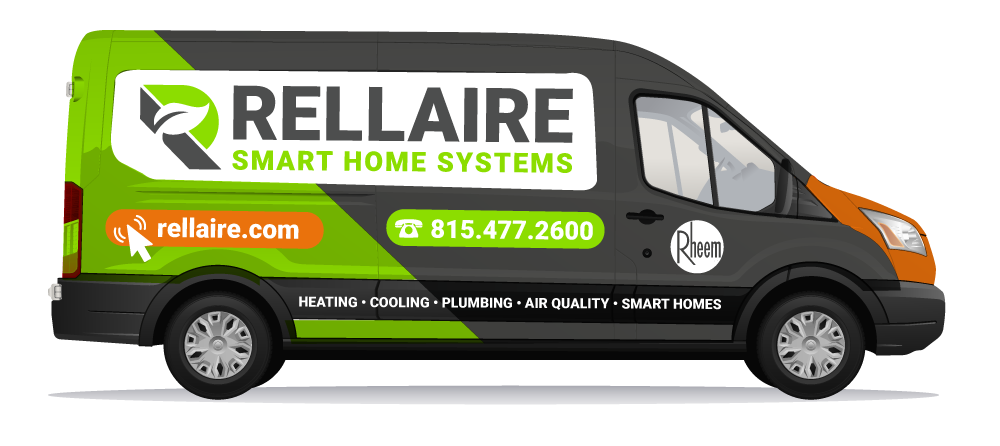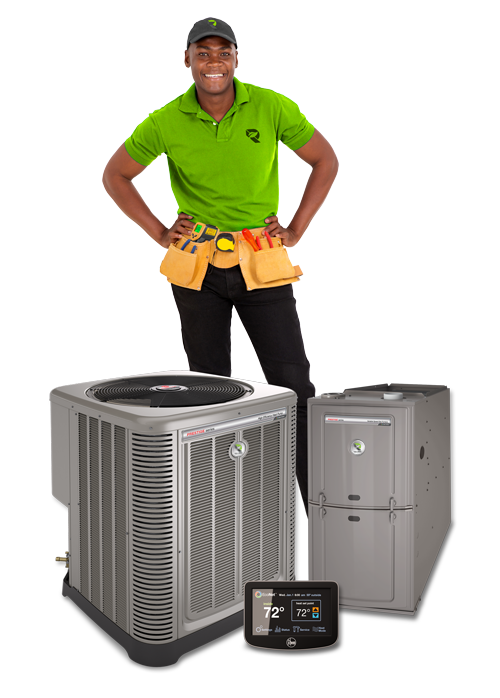Modern furnaces are equipped with a variety of advanced features that enhance their efficiency, functionality, and user-friendliness. These innovations not only improve the comfort of your home but also contribute to significant energy savings and environmental benefits. Here’s a deeper look into some of the cutting-edge features that modern furnaces offer:
Variable Speed Blowers
Variable speed blowers are crucial in modern furnaces for maintaining consistent comfort levels throughout your home. Unlike traditional blowers that operate at full capacity whenever they run, variable speed blowers can adjust their speed based on the heating needs of your home. This allows for precise temperature control, reduced electricity usage, and quieter operation. The ability to operate at lower speeds also means less wear on the furnace components, extending the system’s lifespan.
Modulating Heat Output
Modulating furnaces can adjust their heat output in small increments, such as 1% or less, to match the precise heating requirements of the space. This results in exceptional comfort and efficiency because the furnace provides exactly the right amount of heat needed at any given time. The modulating feature minimizes temperature fluctuations and maximizes fuel efficiency, leading to lower utility bills and increased comfort.
Two-Stage Heating
Two-stage heating furnaces are designed to operate more efficiently by having two levels of heat output: high for cold winter days and low for milder days. This ability allows the furnace to operate most of the time in its lower, more energy-efficient stage, only switching to the higher stage when necessary. This results in quieter operation, reduced energy consumption, and more even distribution of heat.
Smart Thermostat Compatibility
Integration with smart thermostats is becoming a standard feature in modern furnaces. Smart thermostats allow homeowners to control their heating systems remotely via smartphones or other devices. These thermostats can learn your heating habits and adjust automatically to optimize energy use and comfort. They also provide valuable data on your heating system’s performance, which can be used to further optimize settings or detect maintenance needs.
Heat Exchanger Technology
The core of any furnace is its heat exchanger. Modern furnaces often feature advanced heat exchanger designs made from durable materials like stainless steel that resist corrosion and ensure efficient heat transfer. Some high-efficiency models use secondary heat exchangers to capture additional heat from exhaust gases, greatly improving the furnace’s overall efficiency.
Air Filtration Enhancements
As indoor air quality becomes a more prominent concern, many modern furnaces include enhanced air filtration systems to remove contaminants such as dust, pollen, and other allergens from the air. These systems may include HEPA filters, electrostatic filters, or even UV light systems that can neutralize airborne pathogens, ensuring a healthier indoor environment.
Environmentally Friendly Options
Eco-conscious homeowners will appreciate modern furnaces that use environmentally friendly technologies. This includes low-emission systems that reduce the amount of NOx and other harmful gases released into the atmosphere. Additionally, newer models are designed to be compatible with alternative fuels like biodiesel blends, which can reduce dependence on fossil fuels.
These advanced features represent the latest developments in furnace technology, each contributing to a more efficient, comfortable, and environmentally responsible home heating system. At Rellaire Smart Home Systems, we are committed to leveraging these innovations to provide our customers with the best possible heating solutions tailored to their needs and preferences.
Energy Efficiency and Cost Savings
Maximizing the value of a furnace replacement involves making choices that significantly enhance your home’s comfort and efficiency while reducing long-term costs. One of the primary benefits of a new furnace is the potential for substantial energy savings. High-efficiency models can drastically lower your monthly utility bills, making them a financially sound investment. These savings, over time, can offset the initial cost of the furnace, especially when combined with available rebates or incentives for energy-efficient systems.
Advanced Features for Enhanced Performance
Modern furnaces come equipped with advanced features that further enhance their value. Variable speed blowers, for example, provide more consistent temperatures by adjusting airflow according to your heating needs, reducing energy wastage associated with frequent on-and-off cycling. Enhanced filtration systems are another significant benefit, as they improve indoor air quality by capturing more dust, pollen, and other airborne particles. This feature is especially valuable for households with members who have allergies or respiratory issues.
Improved Comfort and Reliability
The value of a furnace replacement also extends to the overall comfort of your home. A properly sized and installed furnace ensures even heat distribution, eliminating cold spots and maintaining a consistent temperature throughout your living spaces. This is particularly important during extreme weather, where reliable heating is crucial for both comfort and safety. Furthermore, a new furnace reduces the risk of unexpected breakdowns, which can be inconvenient and costly, especially during the winter months when heating is essential.
Increased Home Value
Investing in a new furnace can also positively impact your home’s resale value. Prospective buyers often view a new or recently upgraded furnace as a major selling point, as it eliminates the need for immediate replacements or repairs. A modern, energy-efficient furnace can make your home more attractive on the market, potentially increasing its value. By selecting a furnace replacement, you’re not just enhancing your current comfort but also making a long-term investment in your home’s future, ensuring it remains a valuable asset for years to come.





